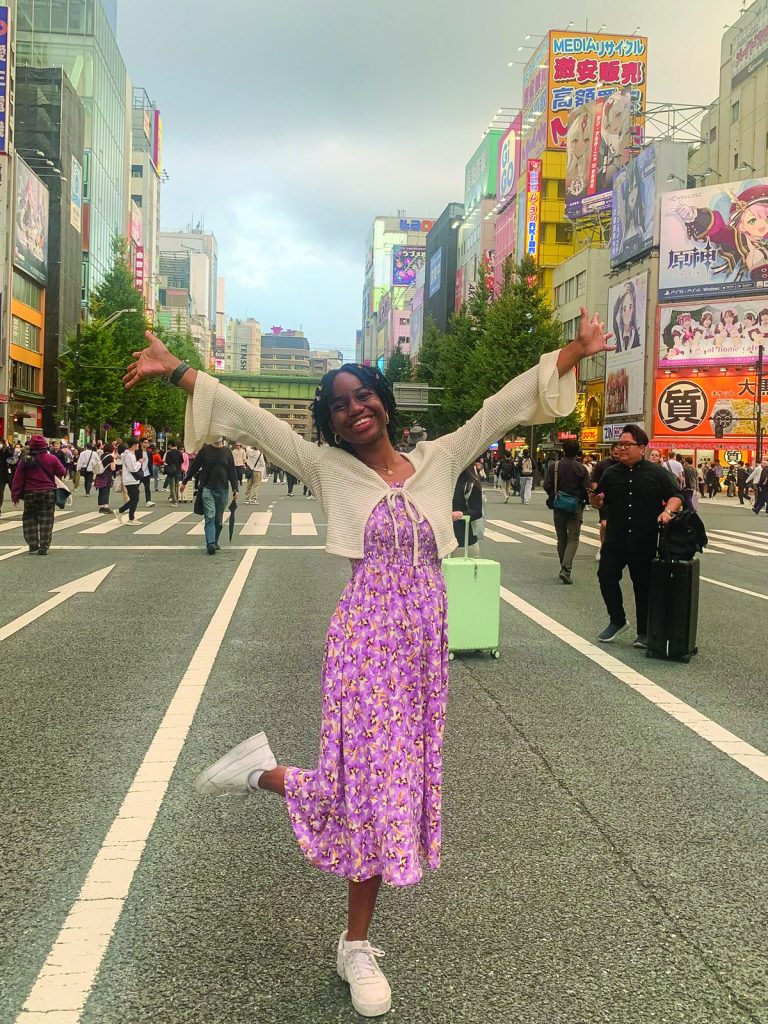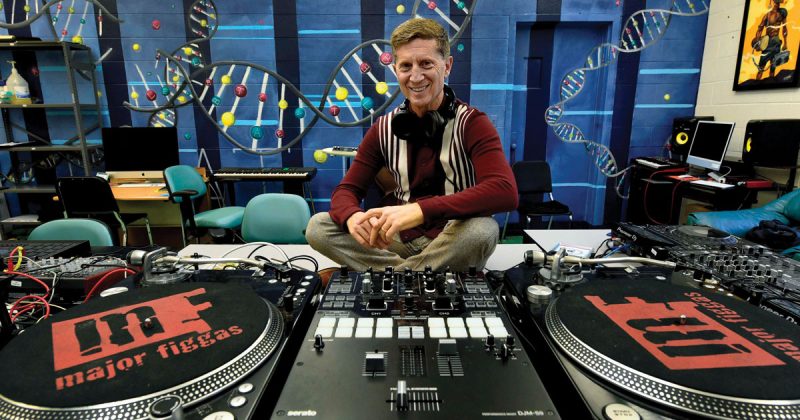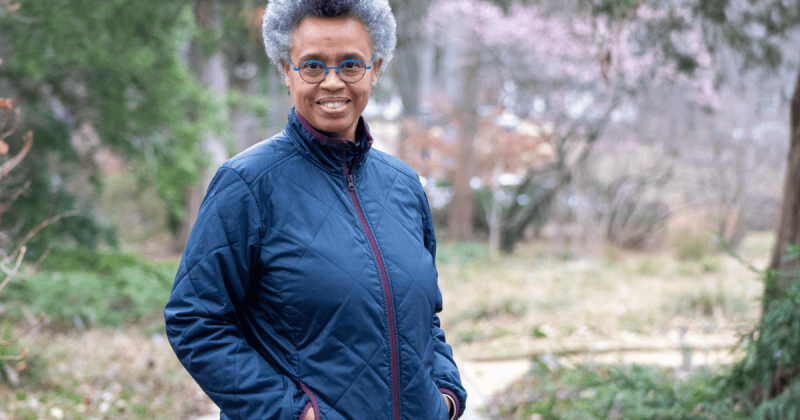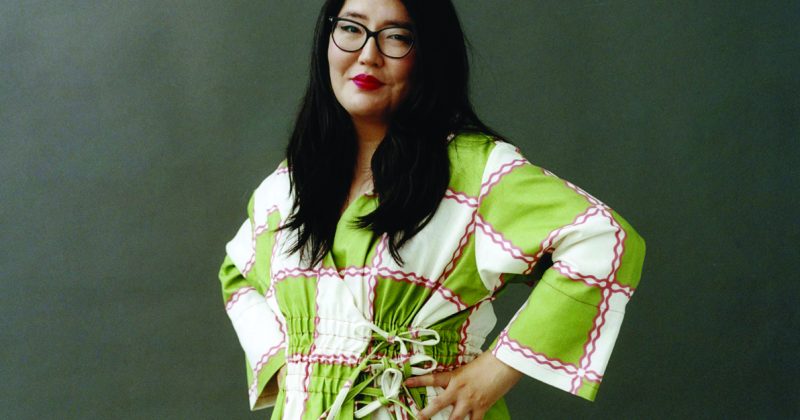
Xenia Weakly, pictured in Akihabara, Japan, learned through her study abroad experience that it is “all the more essential for us to learn about those who are different from ourselves.” (photo courtesy of Xenia Weakly)
When I told my friends and family I was studying abroad in Asia, their first response was often “why?” It was so far away and foreign that it seemed strange for me, a Black girl from the tiny town of Clayton, North Carolina, to want to travel there.
I had no personal connection to Asia. I was simply fascinated by the culture and customs of Japan.
I certainly got my fair share of cultural exposure while abroad. The trains were as fast as they were punctual. The food was as delicious as it was inexpensive. Fun was everywhere all the time: Karaoke, arcades, temples, themed cafes, amusement parks. There were some aspects that admittedly took some adjustment. For such a technologically advanced country, Japan sure loves its paperwork. Political talk suddenly became taboo.
Expectations within the classroom were high, and I missed the prioritization of mental health in America.
My biggest help in navigating this unfamiliar territory? The Japanese people themselves.
Although often private, they were extremely thoughtful, considerate and hospitable. While studying at Nanzan University in Nagoya (a modest city close to Kyoto and Osaka), I took a Japanese culture class. My sensei (teacher) shed light on key aspects of the society that I struggled to understand.
During a lecture, she explained that Japan’s high population and limited land mass meant that empathy became a cultural practice. From childhood, Japanese citizens are raised to always be considerate — interactions are intended to cause the least amount of inconvenience for both people. This allowed for unspoken understanding, mutual connection and smooth communication. A reflexive sensitivity to others.
I was continually fascinated by interactions with my Japanese peers and how different they were from what I was used to. Before I went abroad, I didn’t think of myself as much of an American. Sure, I was a citizen, but I just happened to be born here. However, my national identity became quite clear when put into sharp contrast with others. I was a Black American, descendant of Jamaican ancestors. The way I thought, talked and interacted with the world was far from accidental. Going abroad made it clear to me just how much we are shaped by our national identities. This makes it all the more essential for us to learn about those who are different from ourselves.
This was further reinforced upon my return in speaking with the fellow Phillips Ambassadors in my cohort. Although we went to a variety of countries, something we all returned with was a deeper appreciation of our differences. There is a unique beauty in taking the time and effort to understand something beyond your bubble. Our willingness to engage with people of other cultures resulted in treasured bonds and rich relationships — its own reward.
My time abroad made me realize that I didn’t need a special reason to want to go to Japan. Curiosity and a willingness to learn is more than enough. In a rapidly changing world, the only thing that remains constant are people. Reaching out — across seas, across continents, across borders — is as necessary as it is fulfilling. So the next time you find yourself asking why step outside of your comfort zone, instead ask yourself, why not? If your experience is anything like mine, you will have found it well worth the risk.
Xenia Weakly is a senior double majoring in English and communication studies. She was one of seven fall 2023 Phillips Ambassadors. Upon graduation, she plans to pursue a career in publishing. She hopes to return to Japan soon to continue honing her language skills.
By Xenia Weakly ’24
Published in the Spring 2024 issue | Finale
Read More

Celebrating 10 years of hip-hop cultural diplomacy program
Mark Katz, the John P. Barker Distinguished Professor of Music,…



